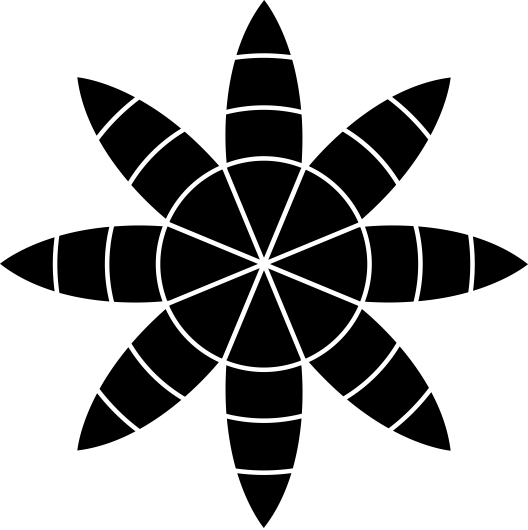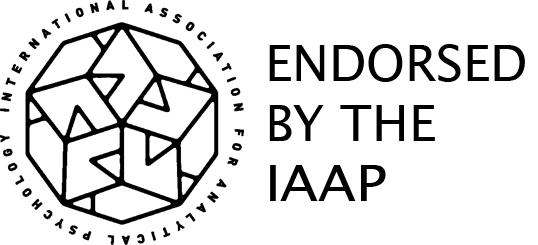Date
- Oct 29 2022
- Expired!
Time
- 9:00 am - 5:30 pm
Local Time
- Timezone: Africa/Nairobi
- Date: Oct 29 2022
- Time: 11:00 am - 7:30 pm
Cost
- $90.00
Speakers
- John Beebe
- Michael Marsman
- Morgan Stebbins
- Sylvester Wojtkowski
- George Makari
- Allison Avery
- Angel Acosta
- Annie Boland
- Paul Browde
Location
- The New York Seminar Center
- 71 West 23rd Street, New York, NY 10010, USA
Other Locations
Online-Zoom
Organiser

Jungian Psychoanalytic Association
Website
https://jungian.directory/iaap-organisations/jpa/Updated 30 Aug 2021. No current or public events.
Otherness, The Other, Othering
Otherness exists on a spectrum. It emerges amidst felt great and small differences.
A sense of self - or of another - as Other may evoke momentary discomfort, sudden prejudice, chronic bias, a need to scapegoat lest one feel inferior, or petrify in embedded xenophobia. When difference is a threat, otherness can nest in rigid identity and hardened projections, or slip out as scapegoating blame to preserve one’s position.
Dream figures, odd impulses. "not myself' reactions, unbidden projections can challenge one’s ideal self, or be encountered as arrows toward growth and depth. For C. G. Jung, acceptance of our kinship with an otherness that mirrors a “difference in ourselves” is essential for relationship, a “synthesis of personality”, group cohesion, societal thriving. This conference explores Jung's view of psyche as an ongoing process of projection and integration, as one confronts and meets; tunes out or listens; rejects or receives first what one “has no wish to be (the shadow); second, what one is not (the ‘other’, the individual reality of the ‘You’); and third, the psychic non-ego (the collective unconscious).” Jung, in The Psychology of the Transference.
PRESENTATIONS:
GEORGE MAKARI, MD: Confronting Xenophobia’s Past And Present
In 2016, amidst an international resurgence of xenophobia, psychiatrist, psychoanalyst and historian George Makari researched the idea’s origins. Coined by late nineteenth-century doctors and commentators, popularized by a stenographer, xenophobia emerged alongside Western nationalism, colonialism, mass migration, and genocide. He chronicles the concept’s rise, from its perverse misuse, its spread as an ethical principle as calamities lead to the Holocaust, and its emergence in the 21st century. He traces, its evolution through Joseph Conrad, Albert Camus, and Richard Wright; Walter Lippmann, Sigmund Freud, Jean-Paul Sartre, Simone de Beauvoir, and Frantz Fanon. Synthesizing history, philosophy, and psychology, Makari offers insights into the conditioned response, the stereotype, projection, the authoritarian personality, the Other, and institutional bias. He seeks a unifying paradigm to comprehend how irrational anxiety and contests over identity in groups, lead to today’s dark headlines of division.
Learning Objectives:
- This lecture will help clinicians to more deeply understand the revealing, historical roots of xenophobia.
- The lecture will propose and analyze four paradigms by which sociologists and psychologists have sought to comprehend this phenomena.
- The lecture will propose a synthetic psychosocial model for xenophobia, and propose theories for its present rise across Europe and the United States.
ALLISON F. AVERY, M.A.: Soul Building as Anti-Racism
A weaving of thoughts and experience, with the ancestors’ concepts around the human experience, the depth analytic understanding of projection, and contemporary studies of cognitive and unconscious bias. We examine projection as essential, unavoidable reality of unconscious process and, as a means by which we may come to know ourselves, through which we are able to transform our relationship to selves and Others. Understanding projection is not only personal soul building. It also is an act against bias, such as anti-racism in our world.
Learning Objectives:
- Participants will learn the basic principles of projection.
- Participants will learn the basic concept and research on cognitive bias.
- Participants will understand the steps to projection and recollection, and their relation to individual and community connection .
MARGARET KLENCK, LP and MORGAN STEBBINS, MDiv, D,Min, LMSW, LP: An Exchange on The Erotic Other: A Journey Toward Wholeness
Jung’s radical understanding is that desire for the other leads to individuation. This desire is channeled through the erotic inner other of the Anima and Animus. Our presentation will show how to use these archetypal concepts in a clinical context and to update them according to new appreciations of gender and sexuality.
Learning Objectives:
- Participants will learn a new understanding of the theoretical concept of Anima/animus in Jungian Theory.
- Participants will learn a new understanding of how to use this material clinically.
- Participants will learn an appreciation of how encountering an Other intra-psychically can bring about healing.
JOHN BEEBE: The Shock of the Inferior Function; The Surprise of Otherness
Man no longer appears as man in our collective culture: he is merely represented by a function, what is more he identifies himself completely with this function and denies the relevance of the other inferior functions. – C. G. Jung, Psychological Types, ¶109, p. 72-73. Advancing his breakthrough idea that an “inferior function” can be of value in the process of individuation, Jung prescribed conscious disidentification with the superior function of one’s typology as a way out of the one-sidedness that is produced when we equate optimal adaptation with the development of a reliable ego-identity. Corporate culture has selected from Jung’s typology a focus on the superior function so that individuals who know who they are can share their strengths as effective team players. When individual analytic work uncovers the repressed inferior function, it is often therefore something of a shock to discover that this area of our obvious incapacity is the key to an individuation that requires empathy in the face of otherness.
Learning Objectives:
This lecture aims to get psychoanalytic practitioners engaged in applying a Jungian perspective to the practice of psychotherapy:
- Participants will learn to look for different degrees of differentiation and ego-capacity among the various functions of consciousness that the same analytic patient can display while attempting to gain a psychological orientation to self and others in the course of a Jungian psychotherapy.
- Participants will learn to identify patterns in dreams and the therapeutic interaction that reveal the presence of the inferior function.
- Participants will learn to understand the special role of the inferior function in relating to conscious areas of incapacity and the unconscious reservoir of potentially reparative consciousnesses.
ANGEL ACOSTA, ED.D.: A* Spark*: A Reflection on Otherness and Belonging
Dr. Angel Acosta, a consultant and educator in leadership, social justice, and mindfulness, earned his Ed.D. in Curriculum and Teaching from Teachers College at Columbia University. He co-designed the program “Contemplating 400 Years of Inequality”, including a 4ft x 20ft timeline chronicling the systemic inequality of Black Americans, Native Americans, women and the working, to support communities’ understanding of structural inequality through contemplative mindfulness. He has served as Program Director for the nonprofit CFES Brilliant Pathway, facilitating K-12 educational leaders and students in peer mentoring. As Director of the Garrison Institute's Fellowship Program, and Creative Director at the NYC Healing Collective. Dr. Acosta and other scholars develop group processes for collective healing of collective trauma.
ANNIE BOLAND, MD and MICHAEL MARSMAN, L.C.S.W.: LGBTQIA: A Conversation on the Concept of Otherness
To probe and question the concept of otherness within working with persons identifying as LGBTQIA. we ask why is there any need to create categories of otherness and who defines them? Is otherness fixed or fluid. In interactions of two psyches - analyst and analysand - the sameness/otherness dynamic moves within and between them. Our conversation confronts the limits of a fixed form of internal images and interior figures rather than a dynamic functional approach, wherein we locate our own LGBTQIA-ness.
Learning Objectives:
- Participants will learn to listen to the nuanced trajectory many of our LGBTQIA patients are on.
- Participants will learn to understand that this can be a very dynamic continuum.
- Participants will learn to work with our own gender identity and sexual orientation as a precursor to the work and in the countertransference.
PAUL BROWDE, MD: Healing Through Listening and Story Telling
Bearing an untold story can be an agony. With generous listening such stories can be told.Once released, and nurtured the stories themselves can become powerful and transformational allies.Paul will reflect on this process and his work, using stories to create definitional ceremonies of healing for individuals and communities.
Learning Objectives:
- Participants will understand the reciprocal relationship between listening and telling.
- Participants will learn to identify obstacles to their own listening and how such obstacles are constitutive.
- Participants will understand the power of storytelling for creating definitional ceremonies for individual and community healing.
SYLVESTER WOJTKOWSKI, PhD: Heteroerotic-Opus contra Naturam-with Poetic Amplifications
Psychoanalysis began with an other’s gaze deemed unbearable. Freud sat behind the patient because he could not “put up with being stared at by other people for eight hours a day (or more).” [emphasis mine, SE, 12, p. 134] Paradoxically, for the gaze into the depths of the modern psyche, the ancient wisdom of eyes as portals or windows into soul was to be avoided. Jung’s face-to-face analysis allowed for each – analysand and analysand – to see the other.,to peer into soul while seeking psyche. During The Black Books/Red Book period, Jung engaged in an “experiment with himself” exploring his inner world through “active imagination.”, guided and initiated by inner figures towards respectful and intimate relationship of one’s conscious ego, intimated soul, and emerging psyche. I will describe Jung’s vicissitudes in relating to inner others from a heteroerotic perspective. I will gather insights regarding how connection to inner others impact on our relations with outer beings.
Learning Objectives:
- Participants will understand dynamic relationship between ego and other parts of psyche.
- Participants will learn the history of Jung’s development of active imagination.
- Participants will learn to question ego attitudes and recognize its dependency on psychic others.- Participants will learn to value the psychic and the interpersonal other.

